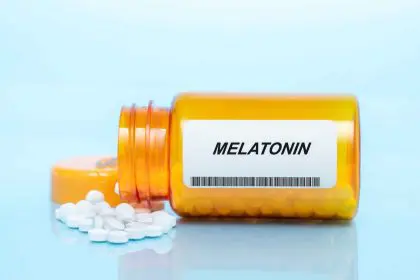In kitchens across the country, this household staple is poured without a second thought. It’s offered at breakfast tables, served with fast food and stocked in school cafeterias. Yet, despite its everyday presence, the truth behind this beverage might shock you. Many people overlook what it could be doing to their bodies—until symptoms emerge that are hard to ignore.
The dangers of sugary drinks
That fizzy, sweet drink millions enjoy every day might be more harmful than helpful. Whether it’s regular soda, sweet tea or a popular energy drink, the effects go deeper than empty calories. They touch the core of your body’s metabolism, gut health and even your mental clarity.
Medical experts and dietitians have warned about the health impacts of sugary beverages for years, but consumption hasn’t slowed. Why? Clever marketing, taste addiction and a lack of awareness continue to keep these drinks in high demand.
How sugar affects your body
High-fructose corn syrup, a common sweetener in many popular drinks, has become a silent saboteur of health. While it’s cheaper and more concentrated than natural sugar, its effects on the body can be devastating over time.
Consuming just one can of soda per day adds up to nearly 39 grams of sugar—well above the daily recommendation for most adults. Over time, this can lead to insulin resistance, weight gain and a higher risk of type 2 diabetes. For children, the effects are even more alarming, increasing the chances of developing chronic diseases at an early age.
Despite this, many families continue to stock these drinks at home, unaware of how quickly they are contributing to long-term health challenges.
Organ damage concerns
Beyond weight gain, the drink you reach for without hesitation can quietly harm your internal organs. The liver is especially vulnerable. Over time, excess sugar intake—especially from beverages—can lead to non-alcoholic fatty liver disease. This condition is rising at a rapid pace, even among people who don’t drink alcohol at all.
The pancreas also suffers. Constant demand for insulin production due to high sugar intake leads to exhaustion, setting the stage for diabetes and other metabolic disorders. And the kidneys? They too carry a burden, especially when the drinks contain phosphoric acid, a common additive in dark sodas. Long-term exposure has been linked to kidney stones and reduced kidney function.
Mental health connections
While most people expect a temporary energy boost or mood lift from a sweetened beverage, the long-term effects on the brain tell a darker story. Studies have shown that individuals who regularly consume sugary drinks report higher levels of depression, anxiety and even mood swings.
This connection becomes even more troubling for teens and young adults who rely on energy drinks or sweet teas during late-night study sessions or work shifts. The sugar highs and crashes don’t just affect energy—they influence emotional balance and brain function.
In children, excessive consumption of sugary drinks has been linked to attention disorders and behavioral issues, adding pressure on both families and schools to rethink what’s served at mealtime.
Immune system effects
One of the least discussed effects of excessive sweetened beverage consumption is what it does to your immune response. Each time you drink a sugar-loaded soda or flavored juice, your immune cells are temporarily weakened. Studies have found that sugar can impair white blood cell function for several hours after consumption.
This leaves the body more vulnerable to infections, especially during cold and flu seasons. Over time, those who consume these beverages regularly may find themselves catching more colds, struggling to recover from minor illnesses or dealing with chronic inflammation.
Inflammation, in particular, plays a major role in many chronic conditions—including heart disease, arthritis and even certain cancers. And sugar is one of its most powerful triggers.
Blood pressure risks
It’s a common myth that only salt raises blood pressure. The truth? Sugar can be just as harmful. Sugary drinks increase uric acid levels in the blood, which in turn causes the arteries to tighten and blood pressure to rise. Over time, this can strain the heart and lead to cardiovascular problems.
Even among young, otherwise healthy adults, regular consumption of sweetened beverages is linked to early signs of heart disease. And for those with a family history of cardiovascular issues, this risk is even more serious.
The “diet” drink problem
Many people turn to diet soda or artificially sweetened drinks believing they’re making a smarter choice. Unfortunately, the science doesn’t support this assumption. Artificial sweeteners may not carry calories, but they can still disrupt gut bacteria, trick the brain and fuel sugar cravings.
Some studies even suggest that diet sodas are associated with increased risk of stroke and dementia in older adults. While they might not raise blood sugar in the moment, their long-term effects on metabolism and appetite regulation are still being explored—and the early results aren’t reassuring.
Steps toward healthier habits
You don’t have to cut out every sweet drink overnight. But taking small steps can lead to lasting change:
- Read labels. You’ll be surprised how many “healthy” drinks contain more sugar than a dessert.
- Add slices of lemon, mint, cucumber or berries to water for natural flavor.
- If you usually drink soda daily, cut back to a few times a week, then once weekly.
- Encourage your kids to help create fun water recipes and try new alternatives like herbal iced teas.
- Support schools and workplaces that provide water stations or limit sugary drink sales.
This common drink might seem harmless. It’s inexpensive, accessible and satisfies a sweet tooth in seconds. But the truth is that it’s robbing many people of their health, one sip at a time.
By choosing to become more mindful of what we put in our bodies, we take back our power. We give our children a better chance at growing up strong. We prevent diseases that don’t need to happen.

















